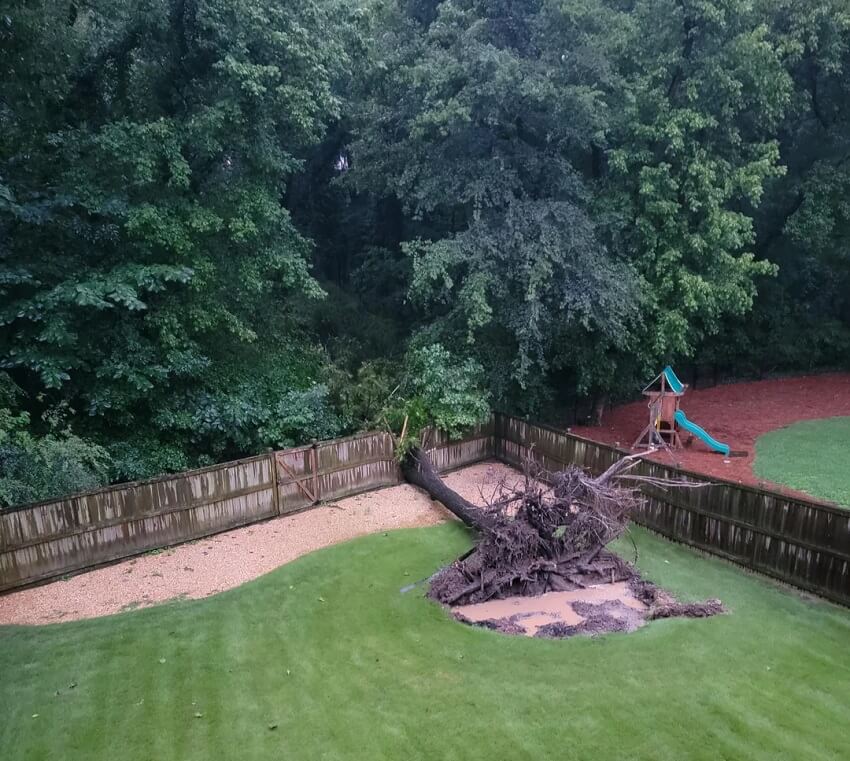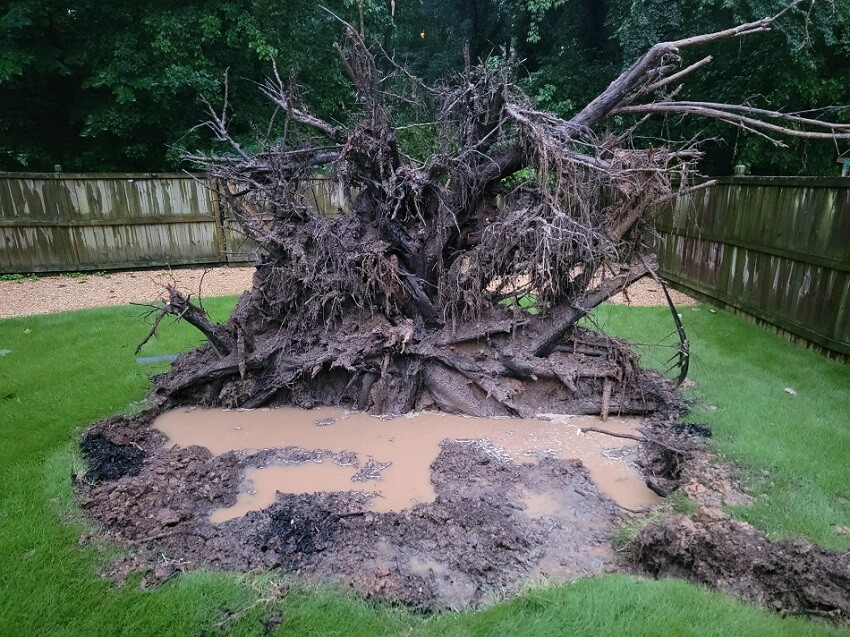Cultivating an outdoor space is a key part of turning a house into a home. However, if you want a space that is both beautiful and functional, doing some research into best gardening practices is critical. Otherwise, you might wind up in a similar situation to this homeowner, who lost a once healthy and thriving tree after making costly landscaping decisions.
In a post to Reddit's r/arborists subreddit, the homeowner shared pictures of a black walnut tree that fell in their backyard after a bout of rain. The images show the fallen tree surrounded by large puddles of pooling water and thick mud as well as a perfectly manicured green lawn that covers every other inch of the yard.


"Can someone tell me what happened here?" the homeowner asked in their post.
Users were quick to identify that the homeowner's monoculture lawn was the most likely reason their tree fell.
"Other than this tree, your yard has no penetrative root systems to pull that rain water into the ground," the most-liked response read. "Turf grass roots do nothing to aid in water retention."
Another chimed in: "Yeah, this tree probably had shallow roots because all of the water pooled at surface level where it evaporated or trickled away. It had no incentive to put in deep roots when there was no water being stored deeper."
Watch now: Head & Shoulders director explains why the company created a new version of its iconic shampoo
Maybe a grass lawn is what you've been led to believe is the most aesthetic choice for your outdoor space, but that doesn't mean it is the best fit with the shape and features of your yard, your region's local climate, and indigenous flora and fauna that also call the area home.
Instead of a grass lawn, users in the comments suggested ripping it all up and installing a rain garden with native plants. It's the perfect solution for flooding and erosion, thanks to the growth of deep roots that hold the soil together and absorb excess water.
Another benefit of a rain garden featuring native plants is the native fauna it inevitably attracts. Native flowers draw pollinators, which are essential to the health of ecosystems and food crops that may also be growing in your yard.
While it's too late to prevent the homeowner's fallen tree, it's not too late for you to check out The Cool Down's guides on rewilding your yard and switching to a natural lawn for more tips.
TCD Picks » Upway Spotlight

"I was not expecting this level of response," the homeowner wrote. "Lessons were learned."
Join our free newsletter for easy tips to save more and waste less, and don't miss this cool list of easy ways to help yourself while helping the planet.













